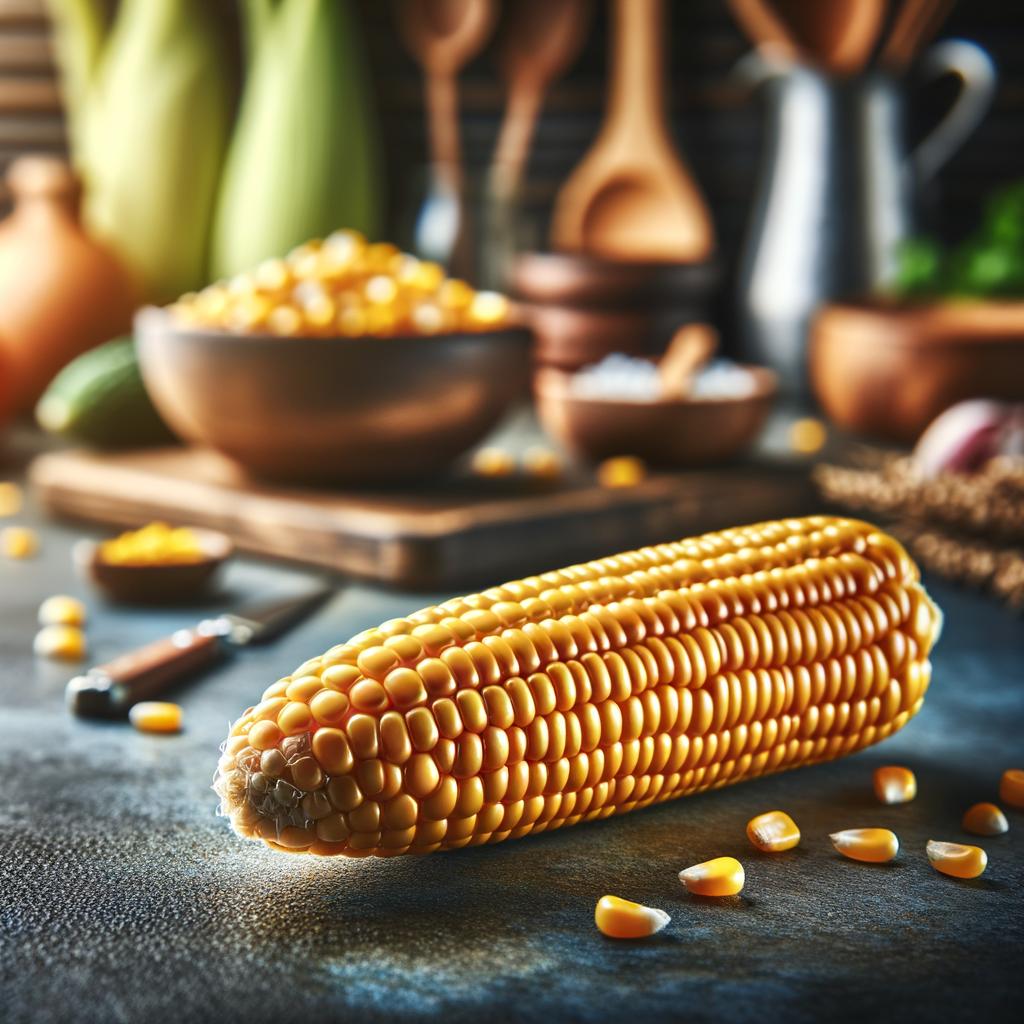Whole Kernel Corn

Description Whole kernel corn, also known as sweet corn, is a delightful food ingredient that is as versatile as it is delicious. It is a type of maize that boasts a vibrant, sunny yellow hue, although it can also be found in shades of white and bi-color. Each kernel is plump and glossy, encapsulating a burst of sweet, earthy flavor within its tiny form. The texture is pleasingly crisp and juicy, offering a satisfying crunch when bitten into. What sets whole kernel corn apart from other grains is its natural sweetness, which lends itself beautifully to both savory and sweet dishes alike.
Primary Uses Whole kernel corn is a beloved ingredient worldwide, finding its place in a myriad of cuisines and dishes. It can be eaten straight off the cob, grilled for a smoky flavor, or boiled for a softer texture. It's a key component in Mexican cuisine, used in dishes like elote (corn on the cob with spices and cheese) and esquites (corn salad). It's also a staple in American cooking, featured in corn chowder, cornbread, and succotash. Beyond its culinary uses, corn has cultural significance in many Native American tribes, where it's used in rituals and ceremonies.
History The history of whole kernel corn is as rich and intriguing as its flavor. Originating in Mexico over 9,000 years ago, it was domesticated from a wild grass called teosinte by ancient indigenous peoples. Corn quickly spread across the Americas, becoming a vital crop for many civilizations, including the Mayans, Aztecs, and Incas. It's said that corn was so essential in the Inca Empire that they even had a corn god named Zara. With the arrival of European explorers, corn was introduced to the rest of the world and quickly gained popularity. Today, it's one of the most widely consumed grains globally.
Nutritional Information Whole kernel corn is not just a tasty ingredient; it's also packed with nutritional value. It's a good source of dietary fiber, which aids in digestion and promotes a healthy heart. It's rich in essential minerals like magnesium, potassium, and iron, as well as vitamins such as vitamin C and B-group vitamins. Corn also contains beneficial antioxidants like lutein and zeaxanthin, which promote eye health. Compared to other grains, corn is lower in protein but higher in sugar, giving it its characteristic sweetness. Despite its sugar content, whole kernel corn is considered a healthy food when consumed in moderation as part of a balanced diet.

